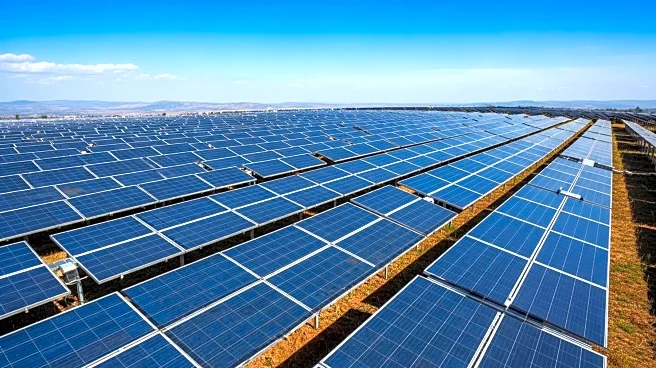What is the story about?
What's Happening?
Rwanda is embarking on a $16 billion solar investment plan to achieve universal electricity access by 2030. The government aims to add nearly 1,500 MW of solar capacity with battery storage by 2050. However, financing remains a major hurdle, with an estimated $3.6 billion needed by 2035 to meet rising electricity demand. The Rwanda Energy Group oversees power generation and distribution, with private investors participating through independent power producer models. Despite tax incentives, industry players call for more predictable policies and cost-reflective tariffs to attract capital.
Why It's Important?
Rwanda's ambitious solar investment plan is crucial for reducing reliance on hydropower, which leaves the country vulnerable to climate shocks. Expanding solar capacity can enhance energy security and support economic growth. However, the financing challenges highlight the need for international support and policy reforms to unlock private investment. Successful implementation of the plan could serve as a model for other African nations seeking to expand renewable energy access.
What's Next?
Rwanda may need to explore additional funding sources and partnerships to overcome financing barriers. The government could consider policy adjustments to make the investment climate more attractive to private investors. International organizations and donor countries might play a role in supporting Rwanda's energy goals through financial aid and technical assistance.
Beyond the Headlines
The push for solar energy in Rwanda reflects broader trends in Africa towards renewable energy adoption. It underscores the importance of addressing policy and financing challenges to achieve sustainable development goals. The initiative could also influence regional energy policies and encourage collaboration among African nations in the renewable energy sector.
















